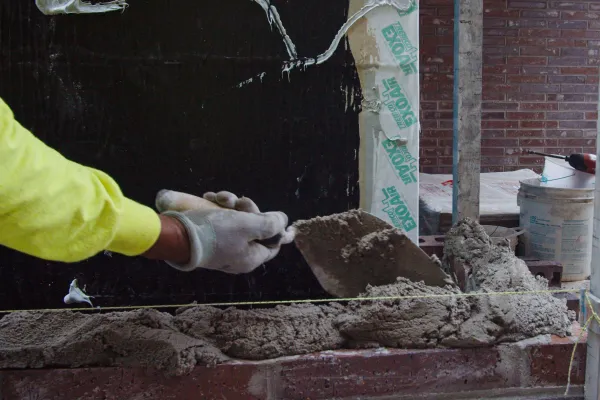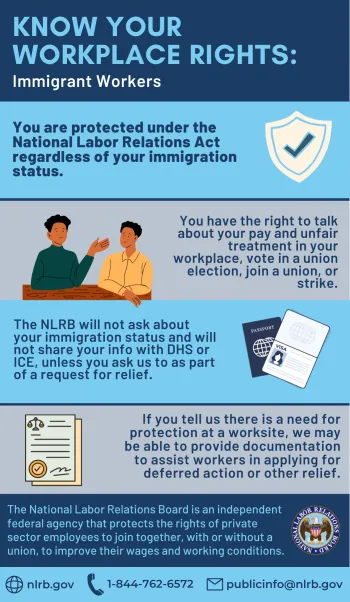Protecting and Organizing Through Deferred Action


Under President Biden, the Department of Homeland Security (DHS) and the National Labor Relations Board (NLRB) are working together to curb the exploitation of undocumented workers, especially in the construction industry.
In Nov. 2021, newly appointed NLRB General Council Jennifer Abruzzo made it clear in a memorandum that the NLRB under President Biden will be an agency that is “not only accessible to all workers who seek our assistance, but is also a safe place where they are treated with dignity, without regard to immigration status or work authorization.”
Then in January 2023, the DHS announced their amended policy on ‘deferred action,’ where undocumented workers involved in a labor dispute are eligible to receive temporary worker status for two years. The policy provides a path for immigrant workers to stand up to corrupt contractors, expose the shadow economy that these bad actors thrive in, and, while doing that, obtain work authorizations that will afford them the workplace protections that all workers seek.
BRICKLAYERS SPEAK OUT AGAINST J. GINGER
Shortly after the policy was announced, BAC organizers worked with half a dozen non-union workers at J. Ginger to help them get this valuable protection, so they could work to organize a union from the bottom-up and expose the dangerous practices there.
One worker was 26-year-old Pedro Benavente. He explained that at J. Ginger, “when it comes to gloves, goggles, helmets — anything to do with safety — they would not give it to you… They do not respect workers’ rights there.” Benavente was later fired because he went to a meeting with BAC representatives to learn more about what protections a union could provide.
The BAC organizers spoke to Benavente about what J. Ginger did — from safety violations and firing him because he met with union representatives — was illegal. If a labor dispute was filed, the organizers informed him he may be eligible with the ‘deferred action’ policy to get a two-year work permit. “When they told me, I honestly didn’t believe them. No one had ever helped me the way that they were offering to,” he said. But then his papers came, “I saw that my insurance, my permit — everything — arrived!”
“The truth is, for an undocumented person, this protection to speak out means you do not need to be afraid of the company that does not tell you, or protect, your rights,” he said. “You are not afraid to look at a person who wants to scare you and intimidate you for something you don’t have. Now you can get your insurance and have all your rights protected. It is very different.” Benavente is now a proud, dues-paying BAC member. “I am with the union and I plan to remain a member, because they taught me what my rights are,” he said. He is excited to get more training and learn his trade better. “I am very happy. I look forward to continuing to work for other companies, in types of jobs, where workers are valued, and their rights are respected.”
If you have a friend or family member currently performing BAC work at non-union company, who is concerned about safety and other workers’ rights violations but afraid to speak out because of immigration status, please have them contact the BAC Organizing department at organzing@bacweb.org to see if deferred action is a possibility for them. For more information on the resources available for immigrant workers, go to bacweb.org.
This article was originally published in Issue 1, 2024 of the BAC Journal. Haga clic aquí para leer en español
